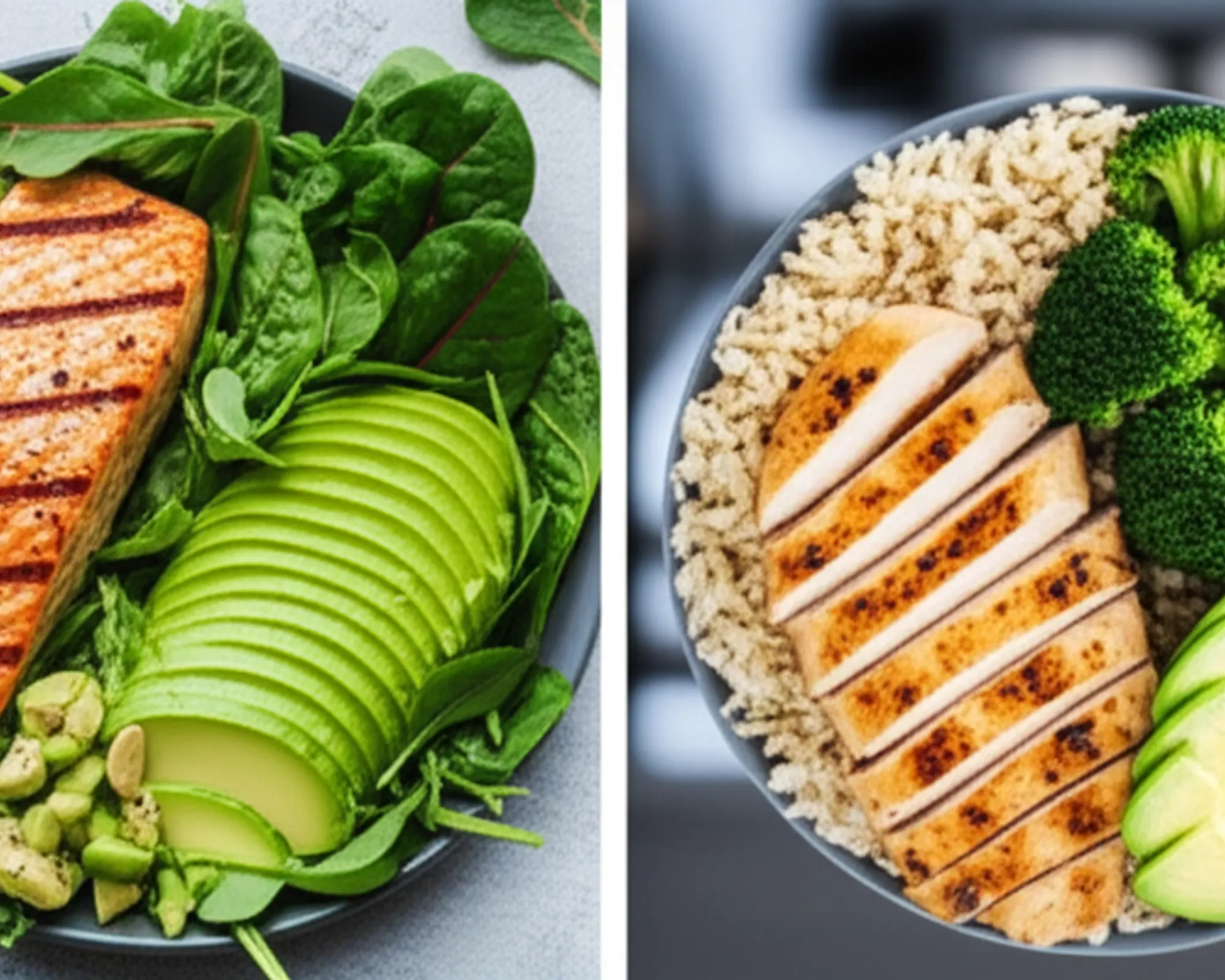Best Gym Tips for Fast Muscle Gain

Are you hitting the gym consistently but feel like your muscle gains are stuck in slow motion? Building muscle fast isn't just about showing up; it's about training smart, eating right, and prioritizing recovery. This comprehensive guide will equip you with the best gym tips to accelerate your muscle growth journey and help you pack on lean mass efficiently.
Understanding Muscle Growth: The Basics
Before diving into the tips, let's briefly understand how muscles grow. This process is called hypertrophy, which involves increasing the size of individual muscle cells. It primarily occurs through two mechanisms: myofibrillar hypertrophy (increase in muscle fiber size) and sarcoplasmic hypertrophy (increase in non-contractile elements like glycogen and water). To stimulate hypertrophy, you need to create sufficient stress on your muscles, followed by adequate nutrition and rest for repair and growth.
Optimal Training Strategies for Rapid Gains
1. Master Progressive Overload: Your Growth Engine
This is arguably the most critical principle for muscle gain. Progressive overload means continually increasing the demands placed on your muscles over time. Without it, your muscles have no reason to grow. How to implement it?
- Increase Weight: Lift heavier than you did last time.
- Increase Reps: If you can't increase weight, try to do more repetitions with the same weight.
- Increase Sets: Add an extra set to your exercise.
- Decrease Rest Time: Shorten the rest periods between sets (though be mindful not to compromise performance too much).
- Improve Form: Performing the same weight with better, stricter form can also count as overload.
Track your workouts! A simple notebook or an app to log your weights, reps, and sets will be invaluable for ensuring consistent progress.
2. Prioritize Compound Lifts
Compound exercises are movements that involve multiple joints and muscle groups working simultaneously. They are incredibly efficient for building overall strength and muscle mass because they allow you to lift heavier weights and stimulate a larger number of muscle fibers. Incorporate exercises like:
- Squats
- Deadlifts
- Bench Press
- Overhead Press
- Rows (Barbell, Dumbbell, Cable)
- Pull-ups/Lat Pulldowns
These should form the cornerstone of your training routine.
3. Perfect Your Form Before Piling on Weight
Ego lifting is the enemy of muscle gain and a friend to injury. Performing exercises with proper technique ensures that the target muscles are effectively stimulated and reduces the risk of injury. Start with lighter weights to master the movement pattern, then gradually increase the load while maintaining strict form. A few less reps with perfect form are far more beneficial than many reps with sloppy form.
4. Aim for the Hypertrophy Rep Range
For most individuals aiming for muscle gain, a rep range of 6-12 repetitions per set is generally considered optimal. This range effectively creates the mechanical tension and metabolic stress necessary for muscle hypertrophy. Aim for 3-5 sets per exercise, pushing yourself close to failure on most sets.
5. Optimize Training Frequency
Muscles don't grow while you're training; they grow during recovery. However, consistent stimulation is key. Aim to hit each major muscle group 2-3 times per week. This can be achieved through a full-body routine, an upper/lower split, or a push/pull/legs (PPL) split. Find what works best for your schedule and recovery capacity.
6. Forge a Strong Mind-Muscle Connection
Don't just go through the motions. Actively focus on contracting the target muscle during each repetition. Visualize the muscle working and feel it engaging. This enhanced mental focus can significantly improve muscle activation and recruitment, leading to better gains.
7. Periodize Your Training
While progressive overload is crucial, your body can adapt to anything. To avoid plateaus and keep your muscles guessing, consider varying your routine periodically. This doesn't mean changing exercises every week, but perhaps every 4-8 weeks, you could alter rep ranges, exercise variations, or introduce new training techniques (e.g., supersets, drop sets) for a cycle.
Nutrition: The Fuel for Muscle Growth
8. Eat in a Caloric Surplus
To build muscle, your body needs more calories than it burns. This "caloric surplus" provides the energy required for muscle repair and growth. Start by estimating your maintenance calories and then add 250-500 calories per day. Track your weight; if you're gaining around 0.5-1 pound per week, you're likely in a good surplus. If not, adjust accordingly.
9. Prioritize Protein Intake
Protein is the building block of muscle. Aim for 1.6-2.2 grams of protein per kilogram of body weight (or 0.7-1 gram per pound). Distribute your protein intake throughout the day across multiple meals to ensure a steady supply of amino acids for muscle protein synthesis. Good sources include lean meats, poultry, fish, eggs, dairy, and plant-based proteins like legumes and tofu.
10. Don't Fear Carbohydrates
Carbs are your primary energy source for intense workouts and crucial for replenishing glycogen stores, aiding recovery. They also play a role in protein sparing. Focus on complex carbohydrates like whole grains, oats, brown rice, sweet potatoes, and fruits. Around 4-5 grams per kilogram of body weight (or 2-2.5 grams per pound) is a good starting point.
11. Include Healthy Fats
Fats are vital for hormone production (including testosterone, which is crucial for muscle growth) and overall health. Aim for 0.8-1.2 grams per kilogram of body weight (or 0.3-0.5 grams per pound). Incorporate sources like avocados, nuts, seeds, olive oil, and fatty fish.
12. Hydration is Non-Negotiable
Water is involved in numerous bodily functions, including nutrient transport and muscle contractions. Dehydration can severely impair performance and recovery. Drink plenty of water throughout the day, especially around your workouts.
Recovery & Lifestyle: Growing While You Rest
13. Prioritize Sleep: The Ultimate Anabolic State
Muscle growth and repair largely occur during sleep. Aim for 7-9 hours of quality sleep per night. During deep sleep, your body releases growth hormone, which is essential for muscle tissue repair and growth. Lack of sleep can elevate cortisol (a catabolic hormone) and hinder your progress.
14. Embrace Rest Days
Your muscles don't grow during your workout; they grow when you're recovering. Rest days are as important as training days. They allow your muscles to repair, adapt, and grow stronger. Active recovery, like light walking or stretching, can be beneficial, but don't overdo it.
15. Manage Stress
Chronic stress can lead to elevated cortisol levels, which can break down muscle tissue. Incorporate stress-reducing activities into your routine, such as meditation, hobbies, or spending time in nature.
The Golden Rule: Consistency
All these tips are useless without consistency. You won't see fast muscle gain by being sporadic in your training or diet. Show up, put in the work, follow your nutrition plan, and prioritize recovery, day in and day out. Progress takes time, but consistent effort will yield significant results.
Listen to Your Body
While pushing yourself is important, distinguishing between muscle soreness and pain is crucial. Don't train through sharp pain. If you feel consistently overtrained (fatigue, decreased performance, irritability), consider taking an extra rest day or deloading for a week. Your body will thank you.
Building muscle fast is a multifaceted endeavor that requires dedication in the gym, discipline in the kitchen, and smart recovery strategies. By implementing these tips, you're not just working out; you're optimizing your body's potential for rapid and sustainable muscle growth. Stay consistent, stay patient, and enjoy the journey of seeing your body transform!


